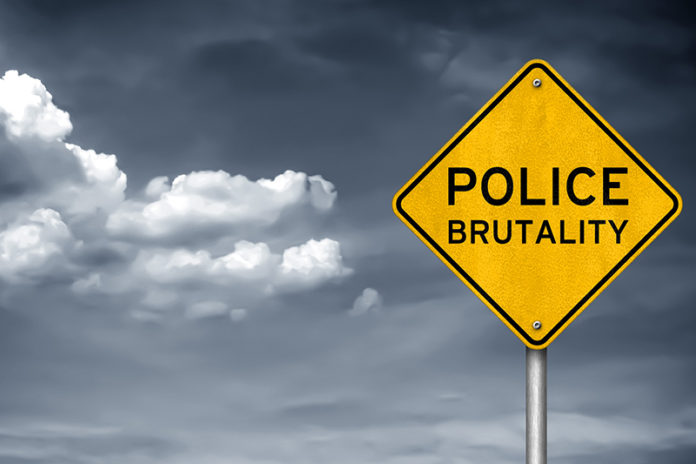Former Minneapolis police officer Derek Chauvin is scheduled to be tried next month on murder and manslaughter charges in connection with the May 25 arrest of George Floyd, who died while Chauvin kneeled on his neck for eight minutes. Yet whether or not Chauvin is convicted, it is not at all clear that he can be held accountable for his actions that day under a federal statute that authorizes lawsuits against government officials who violate people’s constitutional rights.
Despite the details of Floyd’s death, which shocked Americans of all political persuasions and provoked a series of protests across the country, the federal civil rights lawsuit that his family filed last July must overcome “qualified immunity.” That widely criticized doctrine, which the Supreme Court invented in 1982, bars such claims unless the misconduct they allege violated “clearly established” rights, which has proven to be a formidable obstacle for victims of outrageous police abuse.
Given the way that federal judges have applied qualified immunity, Floyd’s relatives may not get their day in court unless the precedents they cite involve conduct very similar to Chauvin’s. As UCLA law professor Joanna Schwartz, a leading critic of the doctrine, puts it, they “would have to find cases in which earlier defendants were found to have violated the law in precisely the same way.”
After turning away a bunch of opportunities to restrict or reconsider qualified immunity last year, the Supreme Court recently suggested that the defense has been read too broadly. This week it vacated a decision in which the U.S. Court of Appeals for the 5th Circuit granted qualified immunity to a correctional officer who allegedly blasted a prisoner in the face with pepper spray “for no reason at all.”
While the 5th Circuit agreed that such unprovoked use of pepper spray would violate the Eighth Amendment’s ban on cruel and unusual punishment, it said the issue was not “beyond debate” at the time of the alleged assault. Think again, the Supreme Court said on Monday, calling the 5th Circuit’s attention to a 2020 case involving a prisoner named Trent Michael Taylor, who was confined for six days in “a pair of shockingly unsanitary cells.”
As the Supreme Court noted in November, the first cell was “covered, nearly floor to ceiling,” in feces, while the second was “frigidly cold” and “equipped with only a clogged drain in the floor to dispose of bodily wastes.” Because Taylor had no clothing and no bunk, “he was left to sleep naked in sewage.”
In that case too, the 5th Circuit recognized an Eighth Amendment violation but concluded that prison officials did not have “‘fair warning’ that their specific acts were unconstitutional.” The Supreme Court disagreed, saying that “no reasonable correctional officer could have concluded” that “it was constitutionally permissible to house Taylor in such deplorably unsanitary conditions for such an extended period of time.”
Whether or not the Court follows through on its apparent willingness to rein in qualified immunity, Congress could abolish the defense, which has no statutory basis. But with a few honorable exceptions, Republicans have shown little inclination to do so — a prohibitive obstacle with the Senate evenly divided.
Colorado exemplified a more promising strategy last June, when it passed a groundbreaking law that authorizes claims against police officers who violate rights protected by the state constitution. Connecticut legislators approved a similar law in August, and last week, the New Mexico House of Representatives passed a broader bill that would cover all government officials.
All three measures specify that defendants cannot block lawsuits by claiming qualified immunity. To address the concern that personal liability could have a chilling effect on legitimate policing, they require government agencies to cover litigation costs and damages in all or nearly all cases.
These laws show that states need not wait for Congress or the Supreme Court to act. They can independently provide a remedy for citizens whose rights would otherwise be violated with impunity.





























